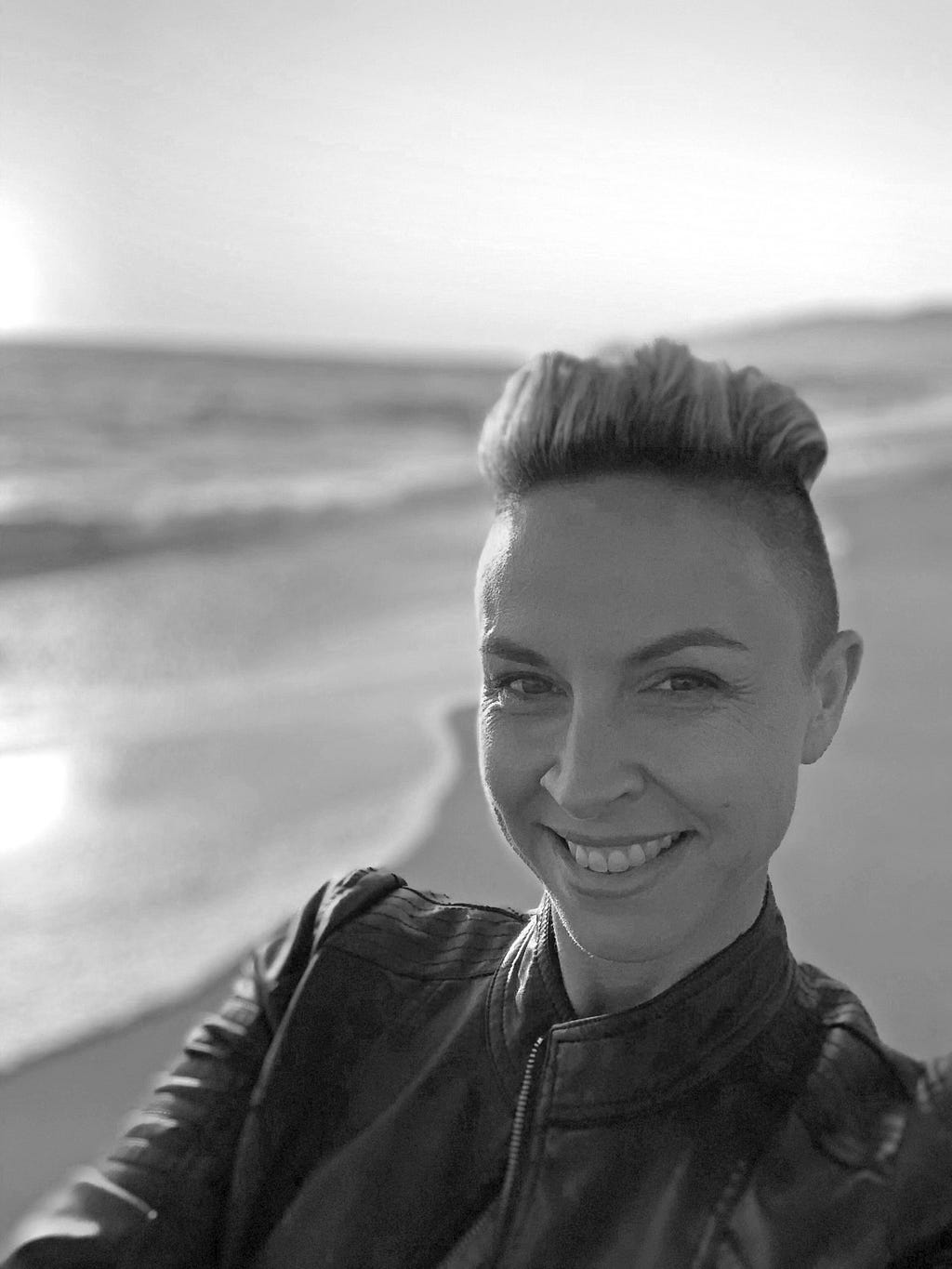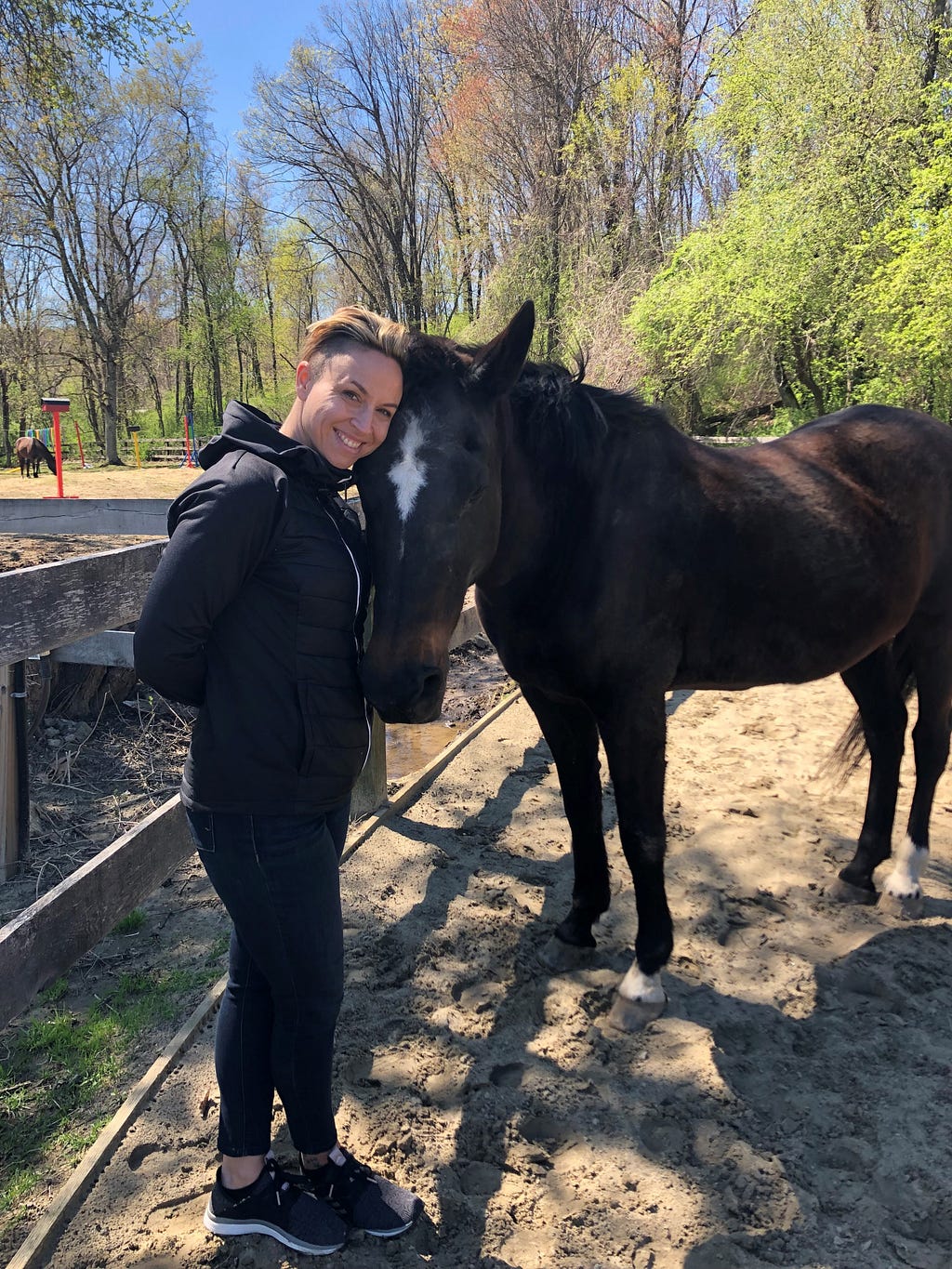
Lack of engagement and the inability to connect with one another is creating a superficial world. We have become a society that is driven by marketing and consumerism. People have become more self-absorbed and disconnected from their surroundings, moving rapidly through their day. In today’s world, it is so common to see people with their heads down, checking emails, scanning through social media, playing online games. There is a need to be the best, to have the best. This has created a void of interaction on a more personal level. It is as if we have forgotten how to interact with one another, to create a real community that helps us build each other up to meet our truest potential rather than tearing ourselves apart.
Jessica holds a Bachelor of Arts in Psychology and is a Certified Professional Recovery Coach. She has much experience working with various public-service groups to empower clients, helping them identify personal goals and make positive choices. She was an advocate for children and families, and also created programs and services to help foster success and self-sufficiency among the formerly homeless. As Alumni Relations Manager at Mountainside, Jessica works to support the continued recovery of alumni after they complete treatment. She provides consistent follow-ups as well as coordinates support groups, and creates networking opportunities for alumni to stay connected to their recovery.
Thank you so much for doing this with us! Our readers would love to “get to know you” a bit better. Can you share your “backstory” with us?
I am a person in long-term recovery from drug addiction. I made the decision to change my life 11 ½ years ago. At the time, I was broken, empty, and soulless.
My journey started in August 2007 when I went through Mountainside treatment center. I hadn’t worked for over a year, I spent every penny I had, and I wanted to die. After leaving treatment, I moved to a new city, leaving everything I knew behind. I did everything they say not to do right out of treatment. Instead of taking time for my self-care and developing the sober skills I learned during treatment, I got into a relationship, I jumped right back into a job, I did not attend meetings, and I wasn’t willing to make new connections. I didn’t ease myself back into everyday life, I didn’t set aside time to focus on my recovery and began to use again. For six months, I was on a path that I felt was going to kill me. Several things opened my eyes to the realities of my future, but one experience brought me to a place where I surrendered and ultimately chose to turn my life around. I was in a motel room, looking into the eyes of a stranger. She looked like she was 100 years old — gaunt, wrinkled, black teeth without a smile, a soulless human. Something in that moment clicked. I realized I was getting a glimpse of my future and that if I did not change, I would become something unrecognizable, or worse, die.
What was it that led you to your eventual career choice?
Being an alumnus of Mountainside, I had always felt a special connection to the place that planted the seed to my recovery. The position to be the Manager of Alumni Relations was open, so I applied. Ultimately, that job became my career. Being in recovery myself and understanding the importance of community made the transition into the role simple.
Can you share the most interesting story that happened to you since you started your career?
I think the most powerful experience was when I led a group of our alumni on a trip to Costa Rica.
The trip was designed to encourage the participants to explore their sense of adventure, foster an interest in volunteerism, and awaken their curiosity about other cultures. On that trip, I was able to witness the purest form of joy. I believe that when we are faced with our fears, we change. There was something on this trip that challenged each person in the group. I watched as everyone came together in support of one another. This gave all of us the space to walk through the “uncomfortability,” coming out on the other side feeling fulfilled.
Can you share a story about the most humorous mistake you made when you were first starting? Can you tell us what lesson or takeaway you learned from that?
I was an unseasoned New York City visitor. I was tasked with starting a support group for our alumni. On that trip, I also had to visit Mountainside’s New York office. A fellow co-worker suggested that I take the subway. To a New Yorker, that might seem like just another part of the daily routine, but the thought of that underground commute terrified me. What if I couldn’t find the Metrocard machine? What if the turnstile didn’t let me pass, and I just stood there swiping my card, holding up the commuters behind me? What if I never found my train? With my thoughts racing, I peered down the stairs to the underground platform and froze. With my co-worker’s encouragement, I was able to finally muster up enough courage to do what I needed to do. But once I got on my train, I was still distracted by my worries and didn’t hear my stop being announced, so I missed it — a rookie mistake. But I eventually found my way back to where I needed to be.
What I learned and what I live by today is that you must be uncomfortable to evolve as a person. Leaning into the challenges and those things that you perceive as impossible will bring you to a place that is so rewarding.
Are you working on any exciting new projects now? How do you think that will help people?
Currently, we are working on expanding the services in the Alumni Department. Our goal is to reach more people and make it easier for them to connect with us and with each other. One way we’re doing that is by offering a holiday support hotline for alumni. It’s important for people recovering from addiction to have a support network, especially during the holiday season when there are so many added stressors that can increase their risk of relapse. We’ve also started hosting more alumni events near our outpatient centers in order to reach even more people in need. We’re especially excited to offer more opportunities for alumni and their families to connect at our newest recovery resource center in the heart of New York City. Alumni can participate in ongoing wellness classes and panel discussions about recovery, and their loved ones can find additional assistance through our Family Support Groups. Through these efforts, we want to build an even stronger, more expansive alumni program that helps our former clients strengthen their support systems and safeguard their sobriety.
Can you share with our readers a bit why you are an authority about the topic of the Loneliness Epidemic?
First and foremost, addiction is an isolating disease. It makes you feel that you are alone, that nobody understands you, that you are not worth it. It is so powerful that it makes you a hostage to yourself. In my early recovery, I felt as if I was bothering people. I didn’t think that I could tell anyone about the turmoil that I was feeling inside, so I sat with it alone, in my own lonely world. It took me years to break out of the mentality that I could do it all on my own. The reality is that community and connection are the keys to recovery. They are the pathway to being free. This is why my role at Mountainside is vital. By providing an outlet for alumni to interact with one another, we are able to foster lifelong relationships and create opportunities for people to build a support system. When you connect with others, you have people who check on you and offer help when you need it.
Ok, thank you for that. Let’s now jump to the main focus of our interview. According to this story in Forbes, loneliness is becoming an increasing health threat not just in the US , but across the world. Can you articulate for our readers 3 reasons why being lonely and isolated can harm one’s health?
Speaking from personal experience, being lonely and isolated can be harmful to your well-being for three reasons:
1) Sitting alone with your problems and feelings can create an internal conflict, a self-directed dialogue that over time becomes increasingly more negative.
2) Not talking to others about what is going on inside of your mind — trying to figure out a solution to your own problems without any direction — can lead to uncertainty and self-doubt.
3) The more you isolate yourself, the less engaged you are with reality, making your world smaller. Ultimately, this can lead to depression, anxiety, and loss of interest in activities that would typically bring you joy.
On a broader societal level, in which way is loneliness harming our communities and society?
Lack of engagement and the inability to connect with one another is creating a superficial world. We have become a society that is driven by marketing and consumerism. People have become more self-absorbed and disconnected from their surroundings, moving rapidly through their day. In today’s world, it is so common to see people with their heads down, checking emails, scanning through social media, playing online games. There is a need to be the best, to have the best.
This has created a void of interaction on a more personal level. It is as if we have forgotten how to interact with one another, to create a real community that helps us build each other up to meet our truest potential rather than tearing ourselves apart.
The irony of having a loneliness epidemic is glaring. We are living in a time where more people are connected to each other than ever before in history. Our technology has the power to connect billions of people in one network, in a way that was never possible. Yet despite this, so many people are lonely. Why is this? Can you share 3 of the main reasons why we are facing a loneliness epidemic today? Please give a story or an example for each.
Social media and advancements in technology have made it easy to connect, but they have also pushed us further away from real contact with others. People have started to compare their lives to what they see while scrolling through their endless social media feeds. Adding items to our cart and having things shipped to us the next day has taken the human connection out of our shopping experience.
And while texting and video chatting has made it easier to connect in real time, we are still lacking the physical presence of a human being, and a sense of belonging. There is a need for deeper emotional connection that isn’t being filled. We want to know that we belong, that we are linked to something real, and we have a purpose that is meaningful.
Seeing that someone likes your post or “hearts” your image gives you a temporary feeling of satisfaction. It doesn’t last. Seeing someone and being in their presence, getting a hug or hearing someone say you are worth it, resonates on a deeper level. I love being around my tribe. The experience of being with another person in the moment, in real time, living life, is what it is all about.

Ok. it is not enough to talk about problems without offering possible solutions. In your experience, what are the 5 things each of us can do to help solve the Loneliness Epidemic. Please give a story or an example for each.
What can we do to contribute to the solution?
- Pick up the phone and call someone you haven’t heard from in a while. Let them know they matter. When I was in the worst depression of my life, it meant the world to me when someone checked on me. That I was thought about, that someone cared enough to reach out to me.
- Volunteer your time. Giving back has always been a big part of my life. I have found that when I am helping another person, I feel a sense of satisfaction. Doing this not only benefits them but also rewards you in a way that is meaningful. You become part of the solution.
- Make plans to do something with a group. Get out and get active. Go to a concert or watch a show. There is a great big world out there waiting for you. I make it a point to visit my family and make plans with my friends on a regular basis. Getting lost in the moments with people you love, sharing laughs, and making memories can be game-changers.
- Join a community. Being a person in recovery, I found that going to meetings made me feel like I wasn’t alone. As time passed, I knew I needed more, so I joined a women’s group that met once a month and built on empowerment activities. They are my tribe.
- Put down your phone and get outside. I love to travel. On a trip to India a few years ago, in the Himalayan Mountains, I had to disconnect. Honestly, I was happy that I had to. I stayed with a family, trekking from village to village. I was immersed in my surroundings, active, and engaged in the present moment. Those experiences have changed me to the core and opened my eyes up to the beauty we all share as humans.

You are a person of great influence. If you could inspire a movement that would bring the most amount of good to the most amount of people, what would that be? You never know what your idea can trigger. 🙂
Getting honest about our realities is the stepping stone to change. We need a movement. We need more people to be real about their lives — not just their struggles, but their successes as well. Three years ago, I emerged from a depression that almost killed me. When I climbed out of the darkness, I felt a lightness I hadn’t felt before. I realized that I had to use my voice to share my story and help the next person. We are not alone; we have more similarities than differences. My hope is that my life experiences, my way of thinking, and my way of living will inspire change in others and give them the courage to speak their truth. Start reaching out; bring people together to share. Host a party, start a conversation, be brave enough to open a dialogue. This can be done in your home, in the community, or in a social space. By becoming stronger collectively, we can help shift the conversation away from loneliness and into connectedness. I truly believe that through love, we can be liberated and live a life fulfilled. We are all on this journey together.
We are blessed that some of the biggest names in Business, VC funding, Sports, and Entertainment read this column. Is there a person in the world, or in the US with whom you would love to have a private breakfast or lunch with, and why? He or she might just see this if we tag them 🙂
There are so many people that I find inspiring. Choosing one is difficult, but if I had to pick, I would say Oprah. She has met and spoken with so many influential people, gaining insight and perspective on how the mind works as well as the oneness that binds us. I love listening to her SuperSoul Conversations Podcast. Being able to meet with her, knowing that she has gained wisdom and insight from so many great leaders and teachers, would be profound.
How can our readers follow you on social media?
You can follow me on Instagram @loveliberatelive or Facebook @jesslynndolan
Thank you so much for these insights. This was so inspiring, and so important!
‘Five Things We Can Each Do To Solve The Loneliness Epidemic’ with Jessica Dolan was originally published in Authority Magazine on Medium, where people are continuing the conversation by highlighting and responding to this story.



